
Nuneaton Town`s first venture into the Southern League from the Birmingham & District League in 1924 was an unmitigated disaster.
During this time, team selection was made by the club`s directors rather than a `manager` or coach.
Placed in the Eastern Division which included a lot of Football League reserve teams, Nuneaton finished third-from-bottom with 18 points from 32 games.
Southampton`s second string won the title with Kettering Town – one of only five `first` teams in the division of seventeen clubs – finishing second.
If that was bad enough for Nuns` supporters, 1925/26 was even worse!
The second season saw Nuneaton sign Scottish forward Jim Shankly from Halifax Town – the brother of Liverpool legend Bill Shankly.
However, despite Shankly`s amazing 42 goals in all games before being `enticed` away to neighbours Coventry City in February 1926, Nuneaton finished rock-bottom, six points adrift of the safety mark.
And they almost folded at the end of the season but managed to ward-off Administration and dropped into the Birmingham Combination.
Although Nuneaton’s venture into the Southern League in the 1920s was such a dismal failure, the club, now known as Borough after being re-formed in 1938, took the plunge and applied for membership once again and were elected back to the Southern League in the close season of 1958.
Nuneaton were one of seventeen new clubs elected to the Southern League that summer.
Moving with Boro from the Birmingham League were Burton Albion and Rugby Town.
The other new teams elected were Wellington Town, Bexley Heath & Welling, Boston United, Cambridge City, Corby Town, Dover, Folkestone Town, King’s Lynn, Llanelly, Peterborough United, Trowbridge Town, Tunbridge Wells United and Wisbech Town.
Nuneaton`s preferred choice as player-manager ahead of the new adventure was former Leicester City inside forward Arthur Rowley, leading scorer for the Foxes for many seasons.
He had been allowed to leave Filbert Street in the summer of 1958 after 303 appearances and an incredible 251 goals.
But in the end, he chose to become player boss at Fourth Division Shrewsbury Town.
In the close season of 196, Nuneaton returned to being managed by a `specialist` rather than by committee and appointed FRED BADHAM.
Badham, an FA Coach, had been on Birmingham City’s books and played for Lye Town, Moor Green and Cradley Heath.
The 36-year-old said that his policy would be to stabilise the team and to develop local talent along the lines of the FA coaching scheme.
After being appointed manager-coach, Badham received an invitation from Walter Winterbottom to assist in coaching the England Youth team at Lilleshall.
After finishing 18th in 60/61, Badham`s side improved a little to finish 14th in his first season in charge and then fourth in 62/63 after which the Board of Directors praised the manager by saying that, although they had not always agreed with his team selections, they had given him a free hand and the success he had made of the job was shown in the results he had obtained!
Finishing fourth, albeit only on goal average, saw Boro promoted back to the Premier Division for 63/64.
Nuneaton finished 15th in their first season back in the top division and improved to eighth in 64/65.
But in November 1965, Nuneaton`s Board announced they wanted Badham to concentrate on the fundraising part of his job and they would appoint a new manager.

And in early December, DUDLEY KERNICK (right), a former Nuneaton player, was appointed as team manager – and he turned out to be a marvellous choice.
A native of Cornwall, Kernick went straight from school into professional football with Torquay United, with whom he stayed for nine years.
An inside-forward in those days, he topped their goalscoring for two seasons.
He then joined Northampton Town but stayed only a couple of months before going to Birmingham City, playing first as an inside-forward, and then as a wing-half.
After three years with the Blues, he joined Shrewsbury Town and was with them when they were elected to the Football League Division III North from the Midland League.
Subsequently, he skippered Kettering Town and also acted as player-coach.
While at Nuneaton he took up coaching and later became a qualified PE teacher with former Birmingham City and England goalkeeper, Gil Merrick.
At that time, Kernick played part-time for Brierley Hill and also carried out extensive coaching for the FA and was manager of Hinckley Athletic.
After leaving Hinckley, he opened a restaurant and coffee business in Birmingham and at the beginning of the 1964/65 season, he became a BBC Sportscaster.
Nuneaton finished 14th in 65/66 ahead of Kernick getting to work on his squad the following summer.
But 66/67 proved to be a terrific season which went right to the wire. However, despite Boro beating fellow title contenders Weymouth on the final day, thanks to a brace from centre-forward Tony Richards, who therefore took his tally for the season to a staggering 54 goals, they were pipped at the post for the title by Romford, who won 2-0 at Worcester City and finished a single point in front of Boro
It was also the season when 18,000 and then 22,000 packed Manor Park for the FA Cup ties against Swansea Town and Rotherham United.
In March 1970, with Nuneaton`s finances once again in trouble, the club decided to re-shuffle its managerial set-up with Kernick handing over the team duties to forward and longest-serving player MALCOLM ALLEN and taking over as full-time commercial manager.
Allen would become player-coach as the team fights against relegation, whilst Kernick would head the financial rescue operation – launched when Boro amalgamated its pool with Birmingham City at the beginning of February 1970.
In the end, despite Boro finishing in a relegation spot, they were reprieved thanks to champions Cambridge United being elected to the Football League.
At the end of the season, Allen was appointed player-manager on a twelve-month contract.
He will continue on a part-time basis and have sole control over the playing side of the club.
Kernick left Nuneaton that summer after five years at Manor Park after being appointed commercial manager of Stoke City.
He went on to become hugely successful for the Potters after launching a
massive pools operation, similar to the one run by Nuneaton.
Allen`s contract wasn`t extended after finishing 16th and the club were linked with several big names, including former Manchester United wing half Maurice Setters and Coventry City stalwart George Curtis.
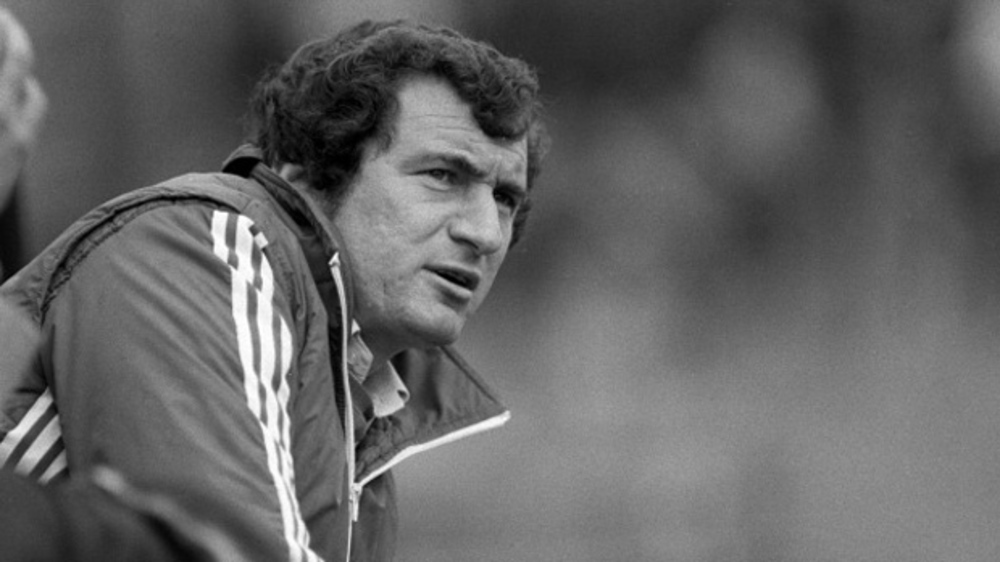
In the end, Boro went for a virtual unknown in Peterborough United winger DAVID PLEAT.
Pleat was appointed as player-manager at the end of the 70/71 season and Malcolm Allen stayed on as his assistant.
And Pleat`s future managerial prowess was set as he led Boro through a successful period after setting in with a 14th place finish in his first season in charge.
Nuneaton ended up in ninth in Pleat`s second season in charge before he resigned in September 1973 after a player had been sold against his wishes and one or two other behind-the-scenes issues.
The club`s reserve team manager and former player, GEOFF COLEMAN, was appointed in caretaker charge.
And the ex-Redditch and Lockheed manager was handed the permanent position a month later and quickly made two significant signings in former Northampton Town stalwarts Billy Baxter and Terry Branston.
Another boardroom bust-up led to Coleman resigning `on principal` just over a month later before agreeing to stay after the situation was resolved.
And shortly after that, Coleman equalled the club`s transfer record by signing striker Joey Owen for £3,000 from Telford United – matching the fee paid for another striker, Tony Jacques, a couple of years earlier.
Coleman led Boro to second spot behind Wimbledon in the Premier Division at the end of the 1974/75 season.
In the summer of 1975, Coleman signed defender Stan Bennett from Walsall.
Coleman had stiff opposition from several clubs, including Chester and Mansfield Town for Bennett`s services and he had also been linked with a player-manager role at Telford United.
The 30-year-old centre-half played a prominent part in Walsall’s FA Cup giantkilling run in 74/75 and was man of the match when the Saddlers knocked out Manchester United.
More of Bennett later!
Meanwhile, Coleman gave a debut to a promising 19-year-old centre-back, Trevor Peake who, of course, went on to be a huge success with Coventry City amongst others.
Coleman lost his full-time position as commercial manager at Nuneaton through another cost-cutting exercise and soon after, in late March 1976, quit his managerial job along with chairman Ken Peal, who also resigned.
But within six days of quitting Boro, Coleman was back in Southern League football after being appointed manager of struggling league rivals Wealdstone.
And two weeks later, Nuneaton appointed STAN BENNETT as player-manager, with his first task to find a new assistant after Alan Fogarty, who acted as caretaker when Coleman quit, opted to follow his former boss to Wealdstone.
Stan Marshall, who had previously been the club`s trainer, was promoted by Bennett to the number two role.
Despite all the chopping and changing, Nuneaton still managed to finish the 75/76 season in fifth spot.
In March 1977, Bennett extended his contract with Boro, signing a two-year deal when interest was shown in him from a Football League club.
Nuneaton again finished in fifth spot in 76/77, with Wimbledon once more taking the title.
But the start of the 77/78 campaign started badly for the manager when he broke his leg in a pre-season friendly against Bedworth United and announced that his playing days were over at the age of 32.
However, in January 1978, after a rumpus with the Board over his `sick leave` after his leg break, Bennett`s contract was cancelled by `mutual consent` and his assistant, STAN MARSHALL, who had been in charge during Bennett`s absence, took another step in a remarkable association with the club he has served on and off for more than 40 years when he was given the post on a more permanent basis.
But within two months, Marshall decided to step down, saying he wasn`t enjoying the top job.

And in March 1978, having received around 50 applicants, Nuneaton appointed former Arsenal and Hull City goalkeeper IAN McKECHNIE (left) as their new manager.
McKechnie, 36, who took over full-time at Manor Park, made more than 500 League appearances in a career that has spanned 16 years.
He was with Arsenal for six years, had a two-year spell at Southend and then spent eight years at Hull.
McKechnie convinced the Boro Board he was the right man for the job after the applications had been cut to a short list of ten.
The short-list included at least two players with international experience and some household names.
But McKechnie walked out on Nuneaton for “private and personal” reasons after only a fortnight as manager!
Stan Marshall, who stepped down to allow the new man to take over, resumed control of the team – for the third time in 77/78.
At the beginning of May 1978, Nuneaton appointed ROY BARRY as their new manager.
Barry returned to football with Boro just four months after walking out on the game.
He resigned as manager of Scottish First Division side East Fife on `a point of principle`.
Barry, who spent four years making 83 appearances with neighbouring Coventry City after coming down from Scotland where he played for Hearts and Dunfermline, also had a couple of seasons with Crystal Palace before returning `north of the border` with Hibernian and then East Fife.
Stan Marshall, the man who steered Boro through a crisis-torn season, left Manor Park.
He was offered a job by Barry but stood by the decision he had made earlier in the year to leave.
He was made a life member – the first person to receive the accolade in the club`s history.
However, in November 1978, Marshall was back – as assistant manager!
Barry announced the news only minutes after Nuneaton had beaten Matlock Town to reach the First Round of the FA Cup.
Nuneaton won a place in the newly-formed Alliance Premier League in 1979 with Barry in charge.
Barry left in January 1980 to become assistant manager at Oxford United and Graham Smith took the reins with former Arsenal and Leicester City star Jon Sammels as player-coach.
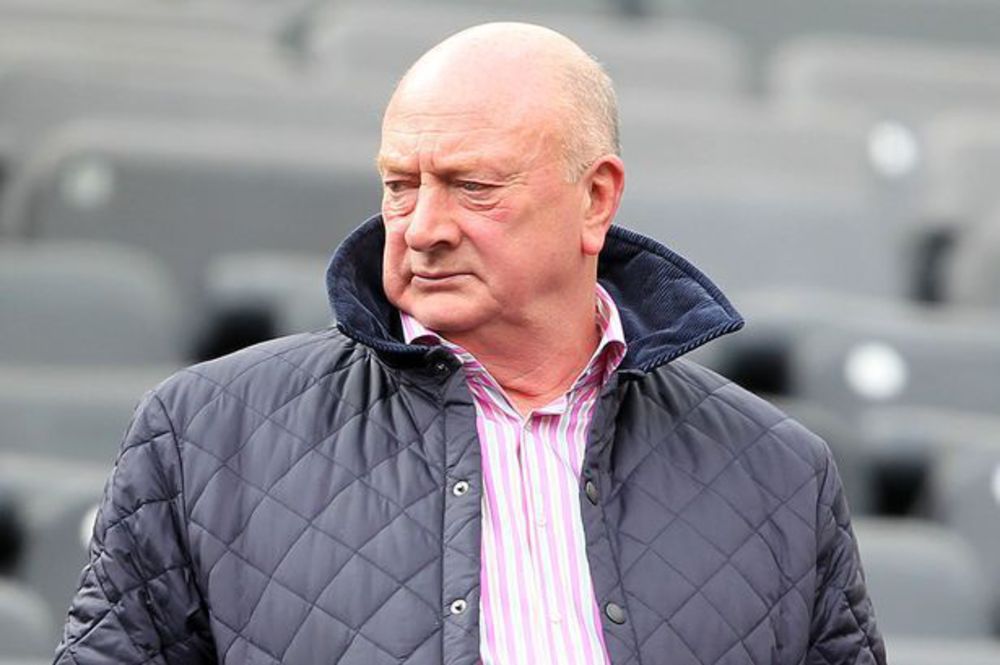
Nuneaton were relegated back to the Southern League in 1981/82 with GRAHAM CARR remaining in charge.
Carr had been appointed in December 1980 on a three-year contract on a full-time basis.
Carr played for Northampton, York and Bradford Park Avenue and in 1971 he skippered Telford United at Wembley when they beat Hillingdon Borough 3-2 in the FA Trophy Final.
After a short spell with Poole Town he was back at Wembley in 1974 with Dartford, but the Kent side lost to Morecamble. However, Carr went on to lead Dartford to the Southern League championship.
He took over as manager of Weymouth from former Nuneaton player Dietmar Bruck and again tasted success as the Dorset side finished runners-up in the Southern League.
He left Weymouth to join Dartford in October 1978 as full-time manager.
Carr led Boro back to the Alliance Premier at the first attempt as champions of the Southern Midland Division.
At the end of the 1986/87 season, despite finishing above the relegation zone, Nuneaton were demoted by the Conference due to the decaying facilities at Manor Park.
So, 1987/88 saw Boro once more back in the Southern League Premier Division.
Former Coventry, Spurs and Republic of Ireland international JIMMY HOLMES, who had taken over in 1985 after Carr`s move to Northampton, remained in charge after the demotion.
However, after a poor start to the season, Holmes resigned in September 1987 and CHRIS WRIGHT was appointed as Boro`s new boss shortly afterwards, although former Manchester City and Wolves midfielder Steve Daley was also in the running.
Wright’s first senior management job was with Solihull Borough when he took them to the top of the league before moving on to Moor Green.
While at Moor Green he saw them promoted to the Southern League Midland Division and within two years the club has risen through the ranks to finish
fourth.
After his move to Alvechurch he established the village club as a major force in Midlands non-league football.
He brought in former Aston Villa player Keith Leonard as his assistant.
But 87/88 was a dreadful campaign for Boro a they finished second-from-bottom and were relegated to the Southern Midland Division.
And just five games into the 88/89 season, Wright was sacked.
He was fired following a 3-1 defeat at Ashtree Highfield.
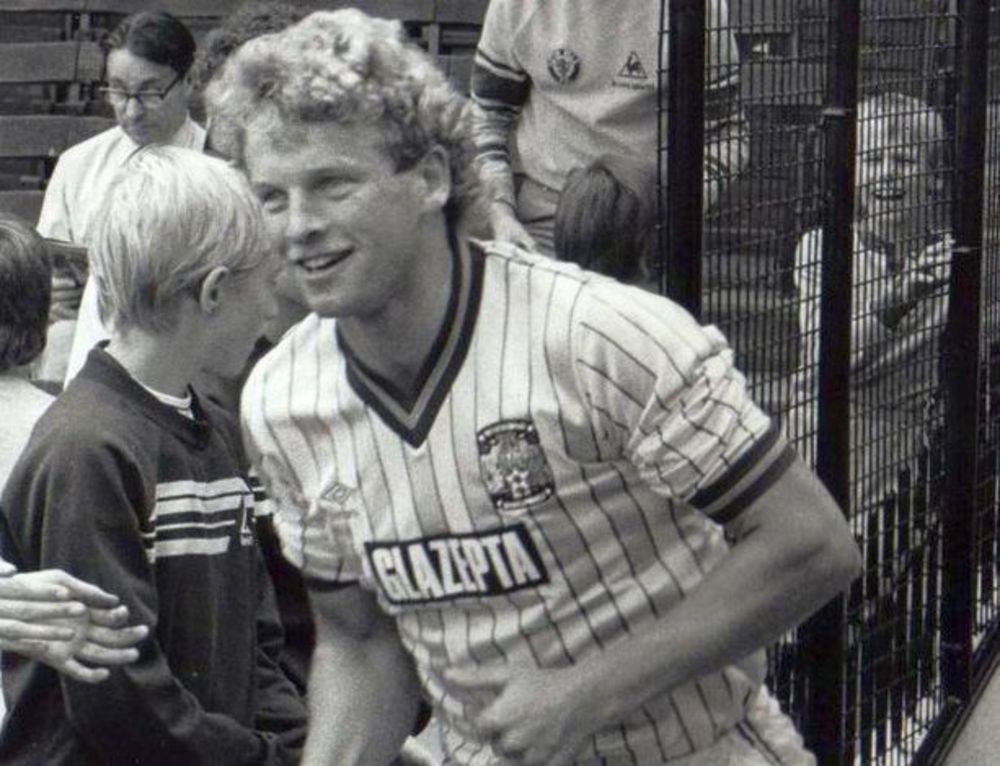
Club skipper KIRK STEPHENS agreed to take over as caretaker manager and he immediately brought back another former Boro favourite, Bobby Vincent, as his assistant.
The club received around fifteen serious applicants for the post but, in October 1988, decided to stick with Stephens and Vincent.
Just one game into the 1989/90 season though, Stephens resigned.
The former Coventry City and Luton Town defender walked off the Manor Park pitch following Boro’s disastrous opening day defeat to Stourbridge and handed in his resignation.
But Stephens, who says that his playing days are now over, stressed that the crushing 5-0 defeat was not the sole reason for him leaving the Nuneaton hot-seat.
He said he quit for personal reasons, with his wife and family and his business commitments.
Stephens` assistant Bobby Vincent was handed the caretaker role and made little secret of his desire to land the big job.
However, Boro named the club’s marketing executive and former goalkeeper, LES GREEN, as their new manager, leaving Vincent seething after being sacked after just one game in charge.
Green played for Boro for three years in the 1960s before going on to play for Brian Clough and Peter Taylor at both Hartlepool United and Derby County.
Another former Nuneaton favourite, Dave Lewis, returned to the club as Green`s number two.
December 1990 the official receiver was called in after the club`s winding up order over debts of around £71,000.
And in January 1991, Green was sacked, despite being a success as a manager.
He was the first to come under the financial axe being wielded by the liquidator.
Another Boro favourite, striker PAUL SUGRUE, who was already on the books, was appointed as caretaker player-manager and he led them to fifth place in the Midland Division table at the end of the 90/91 season.
The close season of 1991 started well for Boro, who were saved from liquidation by a consortium of local businessmen, who immediately appointed the experienced GEORGE ROONEY as manager.
Rooney, who lives in Worcester, has a vast amount of experience as both a
player and a manager.
He started at Everton when he was 15 and then joined Coventry City, where he suffered a broken leg, before moving to Southport.
During the 1980s he joined Altrincham where he was assistant manager-coach before he took over the Worcester City manager’s post in 1986.
He then moved on to Bath City and took them up into the Conference in his first full season in charge with a record haul of 98 points.
Rooney appointed ex-Everton full back John Barton as his player-coach.
The pair led Boro to a sixth-place finish in 91/92.
However, after a great start to the 92/93 season – 21 games unbeaten - Rooney shocked the club by quitting in November 1992 to return to Worcester City.
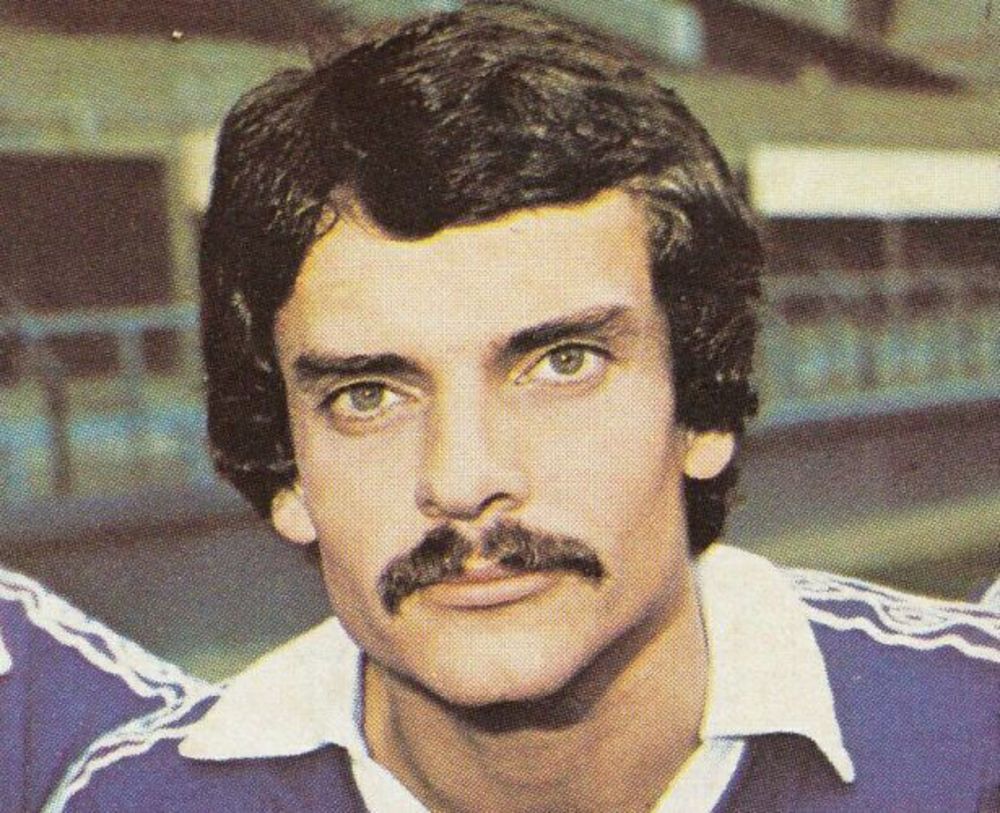
JOHN BARTON was been handed the chance of following his mentor as the new boss.
Barton, the former Everton and Derby full-back, who was brought to the club as Rooney’s right-hand man, was always the favourite for the post after chairman Howard Kerry announced the club would be making a quick appointment.
The 39-year-old played a significant part in the Boro’s upturn in fortunes this season and was delighted to be given the opportunity to manage the side.
Barton wasted little time in bringing in former Everton team-mate Peter Eastoe as his assistant manager at Manor Park.
The much-travelled Eastoe has vast experience at Football League level, having played for Queens Park Rangers, Swindon, West Brom and Everton.
And the former Toffees` duo led Nuneaton back into the Southern Premier Division as Midland Division champions at the end of the 92/93 season, finishing five points clear of second-placed Gresley Rovers and scoring 102 goals.
In November 1993, Barton suffered a blow when he lost influential midfielder Darren Bullock.
He was signed by Neil Warnock for Second Division Huddersfield Town in a deal worth £60,000 – a record fee for a Nuneaton player.
And in March 1994, a disillusioned Barton quit as manager following a ‘final warning’ note from the Board concerning recent league results.
Barton said he was embarrassed and devastated when he read the letter, adding that it left him with no alternative but to resign.
Reserve team boss Kenny Willis was placed in caretaker charge.
His rein was a short one though as Nuneaton appointed Corby Town’s ELWYN ROBERTS as their new manager.
The 38-year-old former Corby, Bedworth United, Barnet and Kidderminster Harriers forward, was highly regarded on the Southern Premier scene having steered the Steelmen to third place in 92/93.
Roberts though couldn`t prevent Boro making a rapid return to the Midland Division after finishing bottom.
His inability to get the club back into the Premier Division at the end of the 1994/95 season – they finished seventh - saw Roberts pay with his job in May 1995.
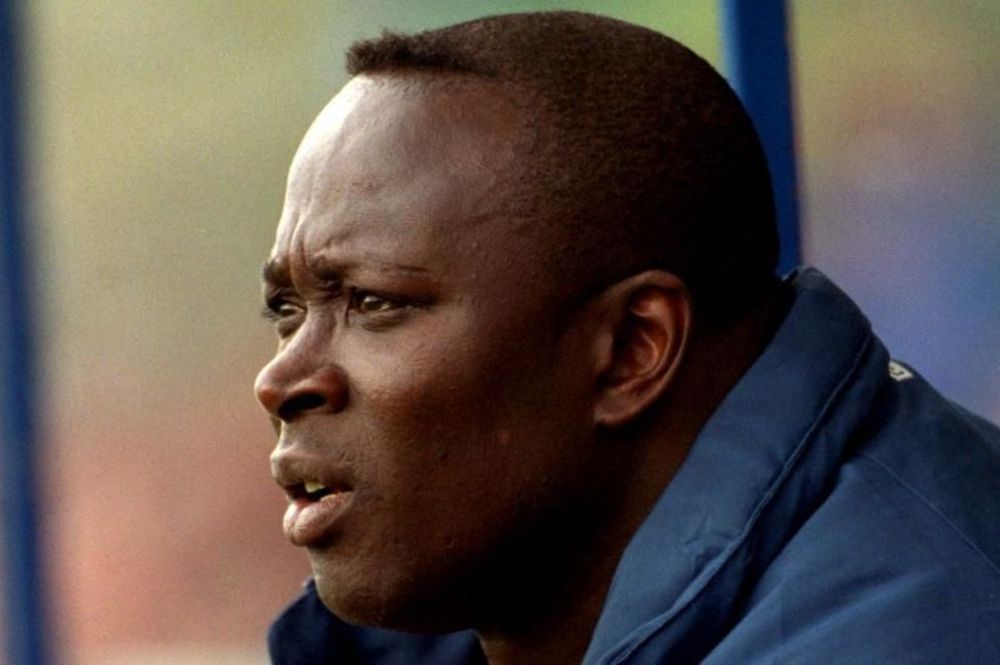
The club appointed another former player in BRENDAN PHILLIPS ahead of the new 1995/96 season.
The ex-England semi-professional international graced Manor Park for several seasons with his silky-smooth skills back in the 1970s and 80s, but also on the managerial front where he did a splendid job at Stafford Rangers.
However, a lack of cash, injuries and misfortune seemed to bedevil him at Marston Road as the Rangers slumped into the lower reaches of the Conference and he parted company with the club in 1995.
Phillips was immediately successful with Boro, leading them back again to the Premier Division as Midland Division champions by an eleven-point margin from runners-up King`s Lynn.
However, Phillips wasn`t finished there as 1998/99 was even more successful as the Premier Division title was won by an even bigger margin of a staggering 23 points from runners-up Boston United!
So, it was a return to the Conference after a gap of twelve years and Phillips was voted the Non-League Manager of the Year at a top awards ceremony in London.
The Borough boss follows in the footsteps of Martin O’Neill, Sammy McIlroy, Paul Fairclough and Steve Cotterill and rates the achievement as “the peak of my managerial career”.
Nuneaton`s first season back in non-League football`s top competition sees them finish 15th.
But football is a cut-throat sport at times, and just a few months after being the best manager in the country outside the Football League and Premier League, Phillips was sacked at the beginning of October 2000.
The Board of Directors announced that, following an extraordinary meeting, the 46-year-old was being relieved of his duties due to a poor start to the season which saw Boro pick up only 11 points in twelve games.
But it was still a disappointing decision as, after taking over from Elwyn Roberts in May 1995, Phillips had led the club up from the Midland Division and into the Nationwide Conference picking up two championships and a League Cup along the way.
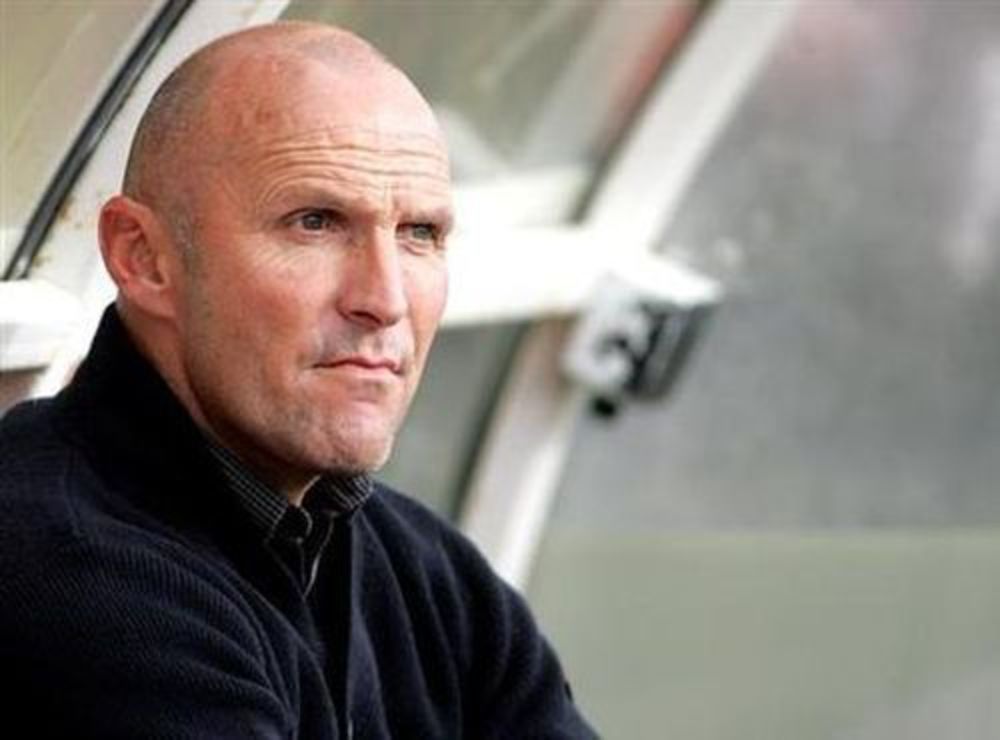
Assistant manager STEVE BURR was put in temporary charge but was appointed manager just before the club faced Stoke City in the First Round of the FA Cup in November 2000.
A crowd of over 8,000 saw Boro hold Stoke to a 0-0 draw at the Britannia Stadium and then cause a major upset by beating them 1-0 with a goal from future Weston-super-Mare boss Marc McGregor goal at home in front of 4,477.
Nuneaton finished a creditable 13th at the end of Burr`s first period in charge and improved on that in 2001/02 by ending up in tenth spot.
However, at the end of the 2002/03 season, Boro were relegated after ending up in third-bottom spot, with old rivals Kettering Town in an even worse state, finishing rock bottom with just 31 points.
And after a period of reflection, Steve Burr resigned a few weeks later.
ALAN LEWER was appointed as the new manager.
The 48-year-old former Telford United boss stepped up after being number two to Burr.
Despite a high number of applicants for the post, the ex-Doncaster Rovers, Boston United and Chester City coach was given the task of getting the club back into the Conference.
Lewer will have to do it the hard way with the budget being cut and a number of players walking away following relegation.
Former Liverpool midfielder Mike Marsh was brought in as Lewer`s number two, although it was a short spell as he was offered an accepted the managers` role at Northern Premier League Burscough, close to were he lived on Merseyside.
Although season 2003/04 back in the Southern League was a reasonably successful one, there was background unrest and several times Lewer was rumoured to be unhappy with how things were going off the field.
And in February 2004, Lewer left after just nine months at the helm.
The parting came on the back of a long running feud with the club’s general manager Alan Prince that left the Board of Directors in a situation where they had to choose between the pair.
Physio and former Leicester City stalwart Richie Norman and Mick Dewis were placed in caretaker charge, but it wasn`t for long as Boro appointed the experienced ROGER ASHBY as their new manager with ex-Nuneaton striker Kevin Wilkin returning as player/assistant boss.
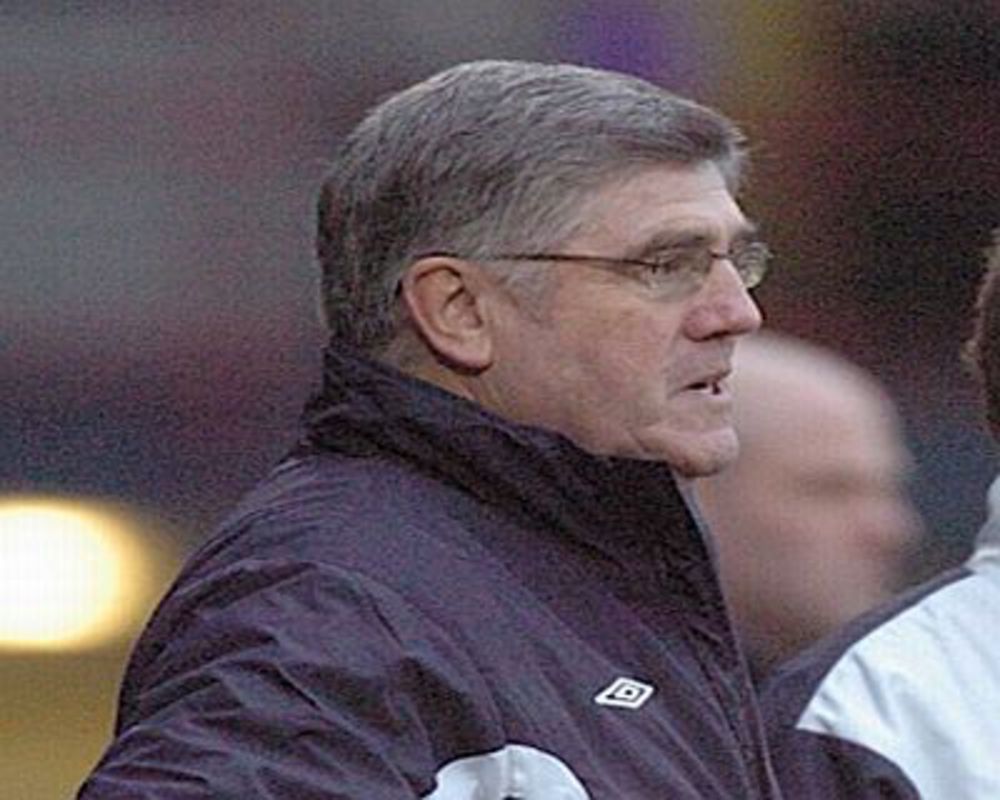
Ashby managed to steady the ship and Boro ended the season in fourth place in the Southern Premier, with Crawley Town as champions.
However, a major re-structuring of the non-League Pyramid saw the introduction of a National League North and South to directly feed the National League.
And Boro qualified for the northern section – and enjoyed an excellent inaugural campaign in which they finished as runners-up to Southport but had to go through the play-offs to earn a place back at the tip of non-League football.
But a defeat on penalties to Altrincham after a 1-1 draw meant Boro would still in the National League North.
At the end of that 2004/05 season, Ashby signed a new three-year deal to remain as Nuneaton manager.
Season 2005/06 saw Boro once again enjoy a good campaign and ended up in third spot.
The play-offs, however, were once again Boro`s undoing as Droylsden, who ended in fourth, won 1-0 at Manor Park.
It came as a surprise, therefore, when in December 2006, Ashby resigned.
The 59-year-old quit following the club’s emphatic 3-0 defeat at Manor Park in the FA Trophy against Redditch United and felt it was in the best interests of the club and himself to part company.
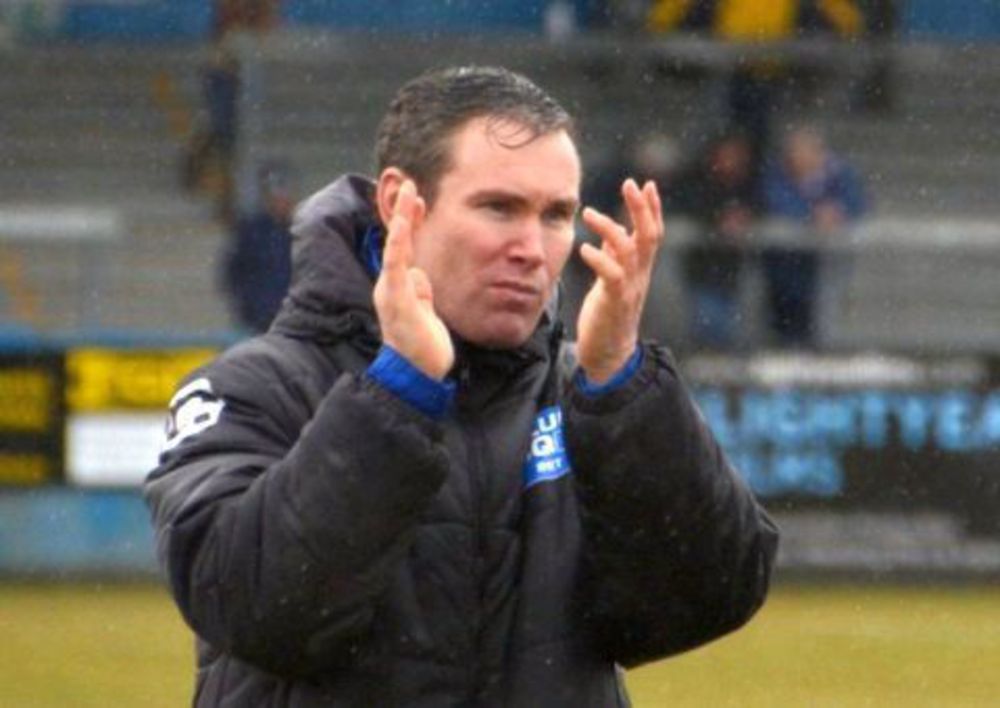
His assistant KEVIN WILKIN was placed in temporary charge, with Ashby backing him to be the club`s next permanent manager.
And, early in January 2007, Wilkin was duly handed the job on a more permanent footing – and it was to be one of the best appointments in the club`s history – ultimately!
Under Wilkin, Boro finished tenth and seventh in the National League North and then disaster struck at the end of the 2007/08 season.
On many occasions over the history of Nuneaton Borough, it came close to financial ruin.
This time there was to be no reprieve – no sugar daddy or supporters saving the day.
Owing almost £2 million, Boro were placed into Administration and officially ceased to be members of the National League North.
New chairman Ian Neale confirmed that the club had gone into liquidation and the FA placed them two divisions lower in the Pyramid, so they would begin the 2008/09 season in the Southern League Division One Midlands and under a new guise of Nuneaton TOWN.
Wilkin remained loyal though and was rewarded with a new two-year contract.
And Wilkin`s new-look team gained an immediate promotion to the Southern Premier Division after finishing runners-up to Leamington.
Season 2009/10 saw Boro make a swift return to the National League North after another second-placed finish and then a 2-1 play-off final win over Chippenham Town.
In 2010/11 saw Nuneaton finish sixth but due to Eastwood Town being unable to take part in the play-offs due to ground problems, Boro took on AFC Telford United but lost out 3-2 on aggregate.
But Wilkin`s men were back again the following season after a fifth-placed finish and this time they won the play-off final 1-0 at Gainsborough Trinity to win a place back at non-League`s top table.
With Nuneaton consolidating in the top section, Boro fans were shocked when, in March 2014, Wilkin announced he was leaving to take the vacancy at league rivals Wrexham after the departure of Andy Morrell.
Wilkin`s assistant Mark Noon took over temporarily until April 2014 when the club appointed former Ayr United manager BRIAN REID as their new man in charge.
The 43-year-old has been working on the scouting staff with Coventry City and has also managed a team in the Philippines.
Reid started his playing career at Glasgow Rangers before seeing service with
Blackpool. He then moved back to Scotland, representing Falkirk and Queen of the South before moving to Ayr.
But Reid`s tenure was a very brief one as, in September 2014, he left the club by mutual consent after a disastrous start to the league programme.
Mark Noon was once again put in temporary charge and was assisted by Nicky Eaden.
At the end of September, Boro appointed former Coventry City centre-half LIAM DAISH as their new manager.
The 42-year-old Republic of Ireland international`s playing career saw him represent Cambridge United, Birmingham City and Coventry City before he moved into non-League football with Havant & Waterlooville.
He then became manager of Gravesend & Northfleet, where, as the newly named Ebbsfleet United, they won the FA Trophy and secured a promotion to the Conference in 2011.
Mark Noon parted company with the club after being involved for eleven years as player, assistant manager and twice as caretaker manager.
But after less than a season in charge, Daish stepped down in the summer of 2015 after Boro finished rock bottom of the table and were relegated back to the north section.
Nuneaton appointed former Northampton Town and Ilkeston Town boss KEVIN WILSON as their new manager.
Wilson quit Ilkeston Town after leading them to the Northern Premier Division play-off final.
The Banbury-born player started his career with his home-town club before signing for Derby County for a fee of £20,000.
He then went on to play for Ipswich, Chelsea, Notts County, Bradford City, Walsall and Northampton Town, while at international level he played 42
times for Northern Ireland, scoring 6 times.
After his success in getting Northampton promoted, he was sacked the following year and moved into non-League football and managed Bedford Town and Aylesbury United before joining Kettering Town where he was ousted by controversial chairman Imraan Ladak, who replaced Wilson with Paul Gascoigne.
The troubled ex-England man lasted just 39 days before Wilson was offered his job back, but only lasted three months before joining Corby Town.
Wilson was then appointed manager at Ilkeston, who went bust mid-season but he stayed with the phoenix club until he joined Nuneaton.
But in November 2016, Wilson was relieved of his duties at Liberty Way and has decided not to stay with the club, despite being offered a director of football role.
Despite high hopes going into the season, Boro found themselves just one place above the drop zone after winning only three of their first 18 games
Former Corby Town manager TOMMY WRIGHT was appointed as the club’s new manager.
A year later, Wright quit the club in somewhat controversial fashion after he moved to his former club Darlington, having previously turned down the chance to return to the north-east.
Wright suffered a rough period and was reportedly sacked at one stage, although the club denied that this was the case.
Shortly afterwards, Boro appointed 46-year-old Tunisian DINO MAAMRIA as their new manager.
The former Southport and Stevenage Borough boss was a prolific goalscorer in his playing days and represented the likes of Doncaster Rovers, Stevenage and Rushden & Diamonds among others.
But in March 2018, Maamria left Nuneaton to re-join League Two side Stevenage as manager and the club immediately appointed ex-Nottingham Forest full-back GARY CHARLES as Maamria`s replacement.
The 47-year-old won two full caps for England as well as six at under-21 level.
He also played for Derby County, Aston Villa and Benfica.
Charles had managerial experience at Lincoln City where he was assistant to David Holdsworth.
Another summer of upheaval saw Boro lose their chairman/owner Lee Thorn and Charles and appointed NICKY EADEN as manager.
The former Barnsley, Birmingham City and Wigan Athletic full-back had previously been involved on the management team at Kettering Town, Peterborough United and Rotherham United amongst others.
The club also announced that it was reverting to its former guise of Nuneaton BOROUGH.
This was another year of off-field turmoil for long-suffering Nuneaton supporters as only an `Eleventh-Hour` rescue bid saved them from folding once more.
In November 2018, Boro parted company with Eaden after he left the club by `mutual consent’.
Assistant manager LEE FOWLER was placed in temporary charge.
The much-travelled midfielder arrived at Liberty Way in the summer of 2018 as Eaden’s assistant and stuck with the club through its darkest days, when they were on the verge of total collapse.
But he left the club, also by `mutual consent` after only two full games in charge.
And enter current boss, local man, JIMMY GINNELLY.
Ginnelly is Nuneaton born and bred and had a great deal of experience in managing local clubs further down the non-League Pyramid, starting his managerial career with local side Stockingford AA before going on to manage Atherstone Town, Shepshed Dynamo and Barwell, where he had spent the previous eight years.

In early February 2019, chairman Nick Hawkins resigned and handed his shares over to Ginnelly, who became owner/manager.
(Nuneaton Town Supporters' Co-operative successfully secured a Heritage Lottery Fund Grant to present a history of senior football in the town. Entitled ‘From Town to Town’ the project aims to chart the history of the football club from its formation in 1889 to the present day.)

Most clubs are looking for volunteers. Find out more on the button below:
www.PitchingInVolunteers.co.ukAll the news and results in one place.
REGISTER